
Ajami: The Historic Heartbeat of Jaffa
Nestled along the shimmering Mediterranean coast, Ajami is a neighborhood that effortlessly blends the ancient with the modern. Steeped in history, this charming locale in Jaffa, Israel, is a mosaic of cultures, cuisines, and stories that have unfolded over centuries. As you wander through its narrow, winding streets, you'll encounter beautifully preserved Ottoman-era buildings, alongside contemporary art galleries and trendy cafes that tell the tale of a vibrant, evolving community. Ajami is a feast for the senses. The aroma of fresh spices and sizzling street food fills the air, while the sounds of bustling markets and the gentle hum of the sea create a symphony unique to this part of the world. Visit the iconic Ajami Mosque, a symbol of the neighborhood's rich Islamic heritage, or explore the nearby Jaffa Port, one of the oldest functioning harbors in the world, where fishermen bring in their daily catch. Art lovers will find Ajami particularly captivating. The area is dotted with galleries showcasing local and international talent, as well as colorful murals that add a modern twist to the historic backdrop. Don't miss the chance to stroll through the Ajami Beach promenade at sunset, where the golden hues of the setting sun cast a magical glow over the entire neighborhood. Whether you're here for the history, the culture, or just a leisurely seaside escape, Ajami offers an unforgettable experience for every traveler.
Local tips in Ajami
- Wear comfortable shoes as the streets are narrow and often cobblestoned.
- Visit the Ajami Mosque early in the morning to avoid crowds.
- Try the local street food; the falafel and shawarma are must-tastes.
- Spend an evening at the Ajami Beach promenade for a breathtaking sunset.
- Check local galleries for rotating art exhibits and cultural events.
Ajami: The Historic Heartbeat of Jaffa
Nestled along the shimmering Mediterranean coast, Ajami is a neighborhood that effortlessly blends the ancient with the modern. Steeped in history, this charming locale in Jaffa, Israel, is a mosaic of cultures, cuisines, and stories that have unfolded over centuries. As you wander through its narrow, winding streets, you'll encounter beautifully preserved Ottoman-era buildings, alongside contemporary art galleries and trendy cafes that tell the tale of a vibrant, evolving community. Ajami is a feast for the senses. The aroma of fresh spices and sizzling street food fills the air, while the sounds of bustling markets and the gentle hum of the sea create a symphony unique to this part of the world. Visit the iconic Ajami Mosque, a symbol of the neighborhood's rich Islamic heritage, or explore the nearby Jaffa Port, one of the oldest functioning harbors in the world, where fishermen bring in their daily catch. Art lovers will find Ajami particularly captivating. The area is dotted with galleries showcasing local and international talent, as well as colorful murals that add a modern twist to the historic backdrop. Don't miss the chance to stroll through the Ajami Beach promenade at sunset, where the golden hues of the setting sun cast a magical glow over the entire neighborhood. Whether you're here for the history, the culture, or just a leisurely seaside escape, Ajami offers an unforgettable experience for every traveler.
Iconic landmarks you can’t miss
The Clock Tower
Explore the rich history and vibrant atmosphere of The Clock Tower, a must-visit historical landmark in Tel Aviv-Yafo that captures the city's spirit.
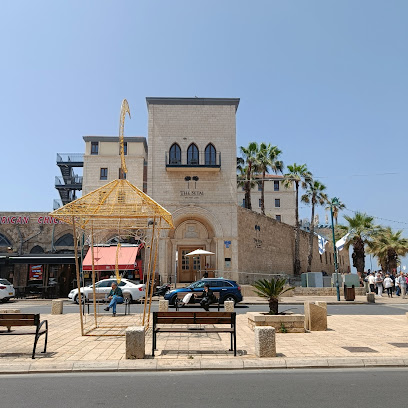
נמל יפו
Experience the vibrant culture, exquisite cuisine, and stunning Mediterranean views at Namal Yafo, a must-visit destination in Tel Aviv.
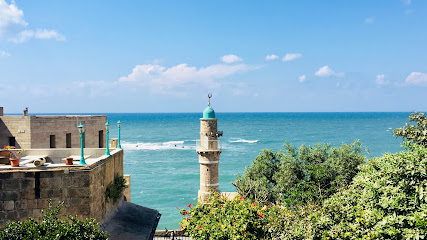
Old Jaffa
Explore the timeless beauty of Old Jaffa, a historical landmark brimming with art, culture, and breathtaking Mediterranean views.
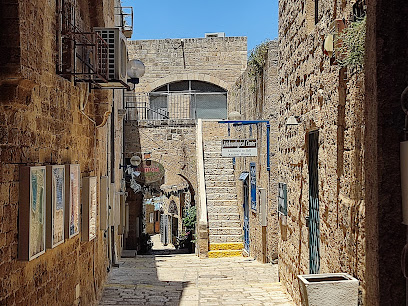
Midron Yaffo Park
Experience the tranquility and stunning views at Midron Yaffo Park, a beautiful urban oasis in the heart of Tel Aviv-Yafo.
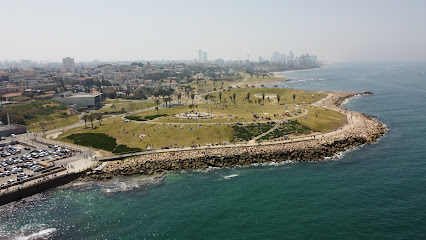
Jaffa Light
Explore the historic Jaffa Light, an iconic lighthouse offering stunning views and a glimpse into Tel Aviv's rich maritime heritage.
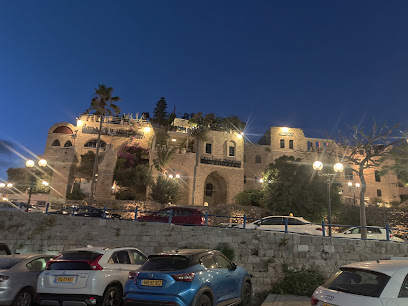
Sabil Abu Nabut
Discover the historical charm of Sabil Abu Nabut, a tranquil fountain in Tel Aviv-Yafo, where culture and community converge in a serene oasis.
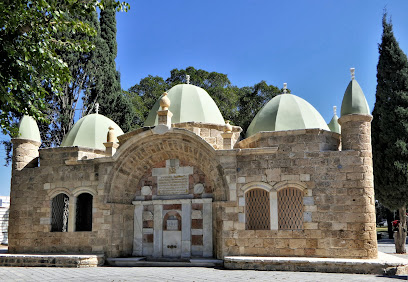
קו החוף של תל אביב-יפו
Explore the Co-Op of Hahutz Shel Tal Abib in Tel Aviv-Yafo, a serene escape filled with nature, art, and local culture, perfect for every traveler.
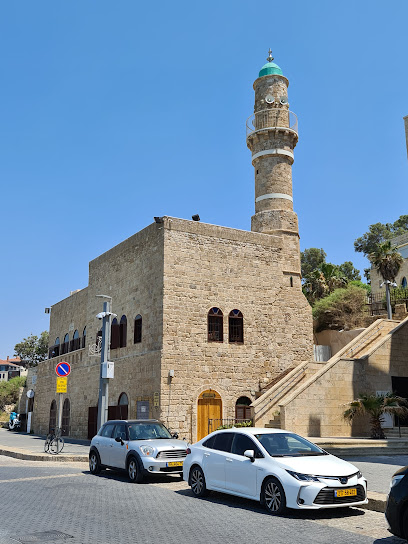
Jewish cemetery in Jaffa
Explore the serene Jewish Cemetery in Jaffa, a historic site revealing the rich cultural heritage of the Jewish community in Israel.
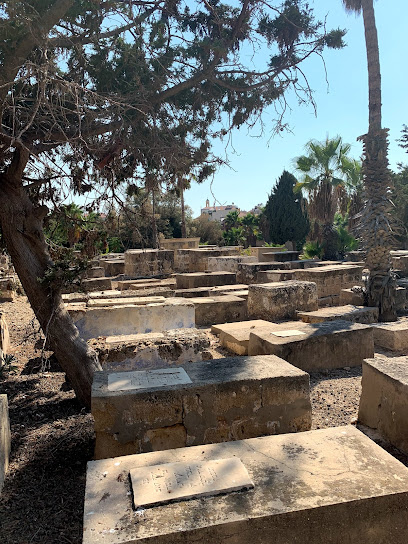
Old Jaffa town-Tel Aviv
Explore Old Jaffa, a historic coastal gem in Tel Aviv, where ancient charm meets vibrant culture and stunning Mediterranean views.
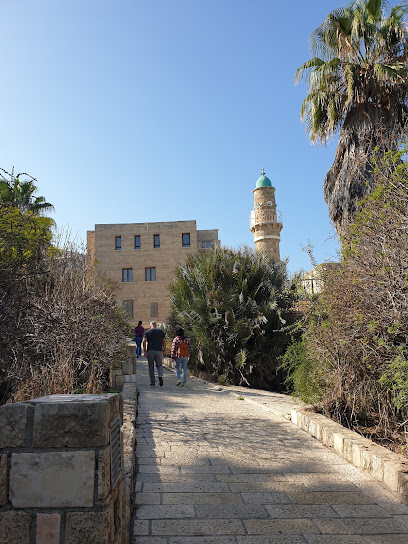
Яффа
Explore the historical marvel of Yafo, a captivating blend of ancient heritage, art, and culinary delights by the Mediterranean Sea.
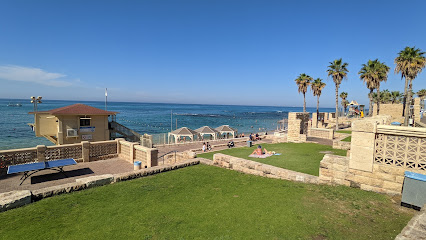
Unmissable attractions to see
Jaffa Flea Market
Explore the enchanting Jaffa Flea Market, where history meets modern creativity in a vibrant tapestry of culture and flavors.
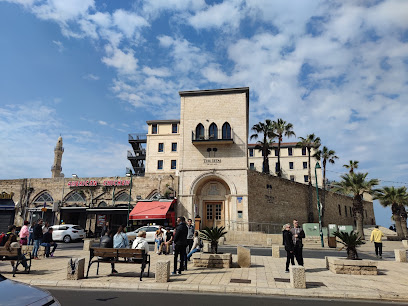
Midron Yaffo Park
Explore Midron Yaffo Park, a serene coastal retreat in Tel Aviv-Yafo, perfect for relaxation, picnics, and breathtaking Mediterranean views.
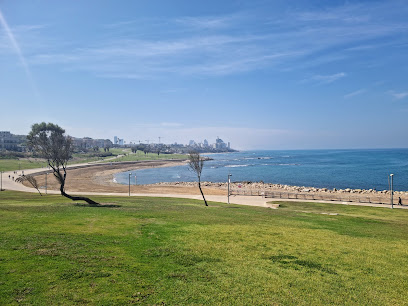
Sabil Abu Nabut
Explore the historical Sabil Abu Nabut in Tel Aviv-Yafo, a stunning 18th-century fountain rich in culture and beauty.
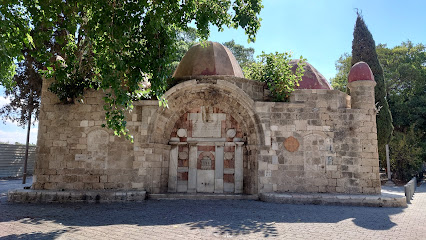
Essential places to dine
The Old Man and the Sea
Experience authentic Mediterranean cuisine at The Old Man and the Sea in Tel Aviv - where fresh seafood meets rich cultural flavors.
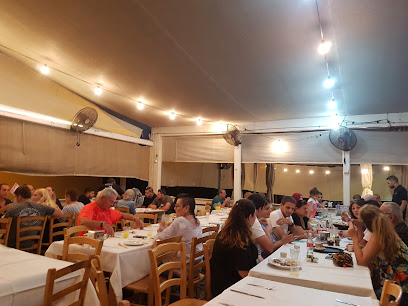
Cafe Puaa
Discover Cafe Puaa in Tel Aviv: A delightful blend of local flavors and eclectic decor awaits you at this charming restaurant-cafe.
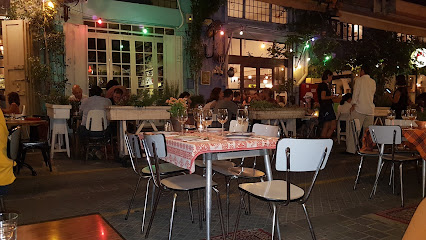
Faruk BaShuk
Discover Faruk BaShuk: A Culinary Gem in Tel Aviv-Yafo Offering Exquisite Dishes and Inviting Atmosphere.
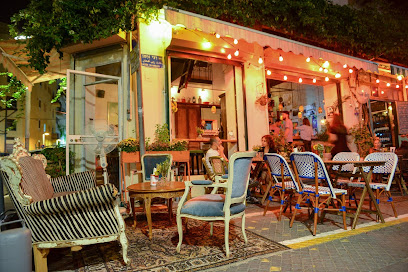
Onza
Experience the vibrant culinary scene at Onza in Tel Aviv - where traditional flavors meet modern flair in every dish.
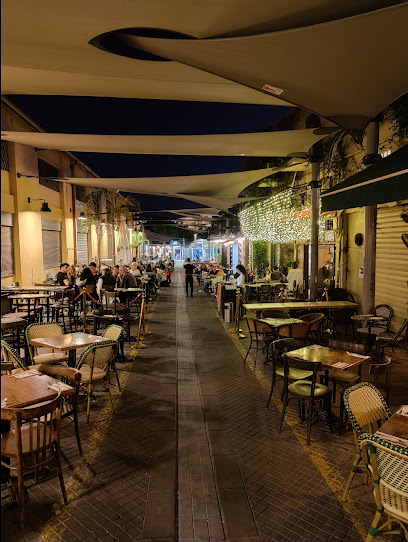
Kalamata
Discover Kalamata: An exquisite blend of authentic Greek flavors and Mediterranean charm awaits you in Tel Aviv.
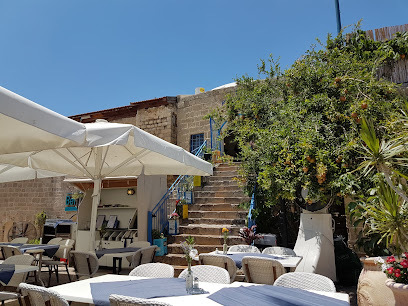
Ramesses Restaurant
Experience exquisite Mediterranean dining at Ramesses Restaurant in Tel Aviv—where authentic flavors meet warm hospitality.
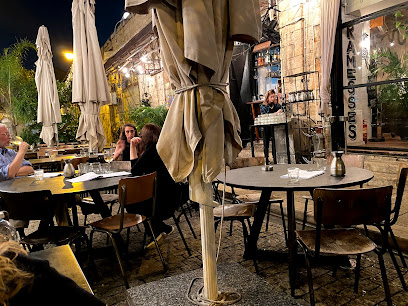
חג׳ כחיל
Experience authentic Middle Eastern cuisine at Haj Kahil in Tel Aviv-Yafo, where delicious flavors meet vibrant culture.
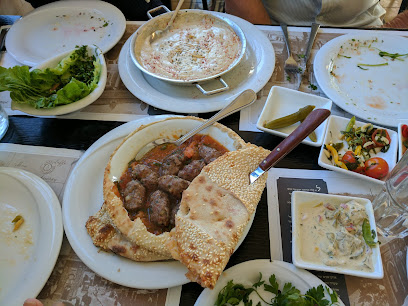
Afloka
Experience the essence of Middle Eastern flavors at Afloka, where exquisite dishes meet warm hospitality in vibrant Tel Aviv.
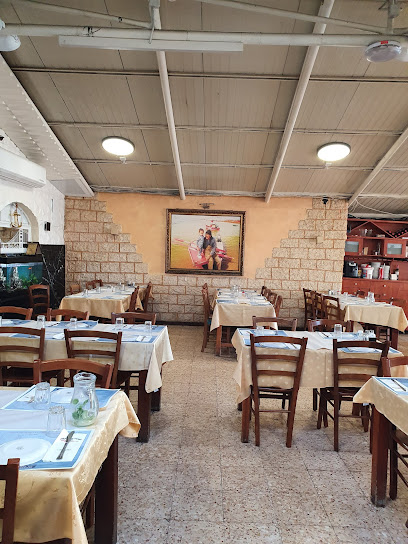
The Omar and the sea.
Discover authentic Mediterranean cuisine at The Omar and the Sea in Tel Aviv, where fresh fish meets vibrant flavors in an inviting atmosphere.
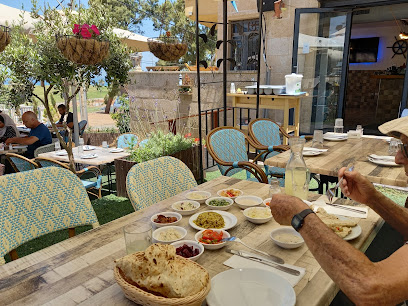
Margaret Tayar
Experience authentic Mediterranean flavors at Margaret Tayar in Tel Aviv-Yafo - where fresh seafood meets warm hospitality.
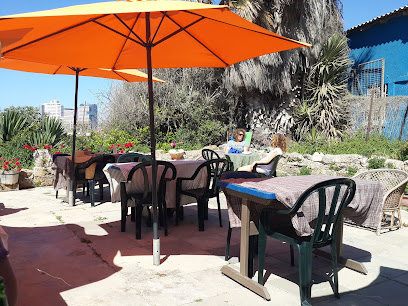
Markets, malls and hidden boutiques
VONBERG JAFFA וונברג יפו
Explore stylish and high-quality fashion at Vonberg Jaffa, a unique clothing store in the heart of Jaffa, perfect for all fashion enthusiasts.
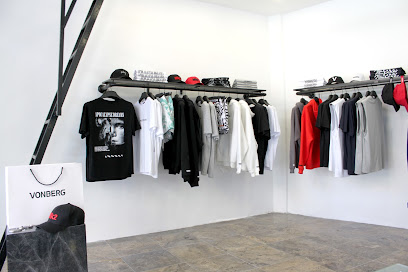
BoBo
Discover unique fashion pieces at BoBo in Tel Aviv—where style meets individuality and trends come alive.
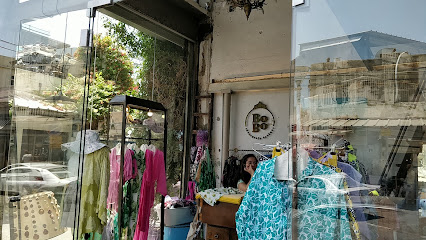
Magasin III Jaffa
Explore contemporary art and culture at Magasin III Jaffa, an essential destination for art lovers in the heart of Tel Aviv-Yafo.
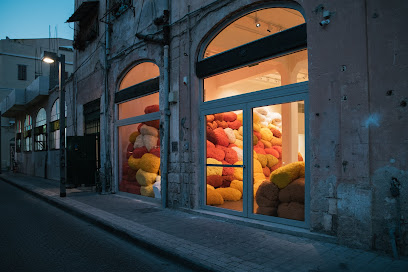
Hilweh Market
Explore Hilweh Market in Tel Aviv-Yafo for unique handcrafted gifts, artisanal jewelry, and a vibrant cultural shopping experience.
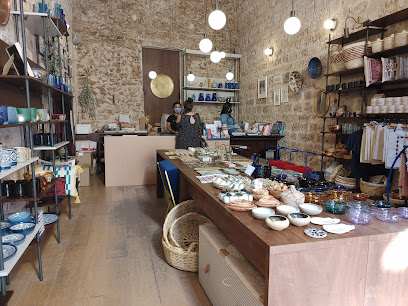
Love Me Two Times
Uncover vintage clothing gems in Tel Aviv at Love Me Two Times, your go-to second-hand store for sustainable fashion.
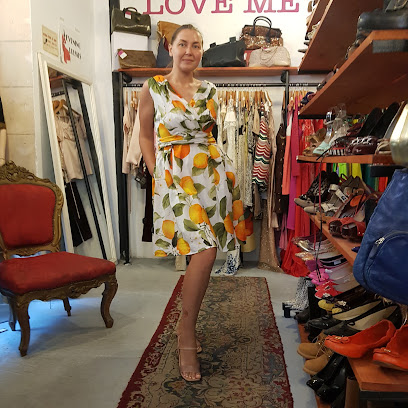
Shoppu שופו - סניף יפו
Discover unique gifts and charming stationery at Shoppu, a delightful shop in Jaffa’s vibrant flea market.
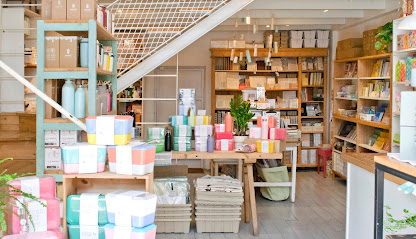
SAGA TLV
Experience the best of Tel Aviv-Yafo at SAGA TLV, a vibrant store at Jaffa Port offering unique local products and stunning Mediterranean views.
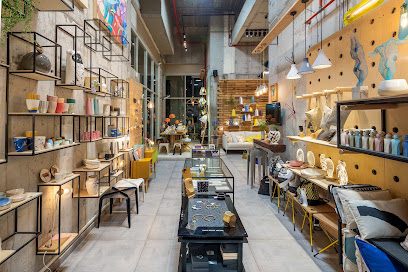
Hagar jewelry shop
Explore Hagar Jewelry Shop in Tel Aviv-Yafo for exquisite handmade pieces that blend tradition with modern design, perfect for every jewelry lover.
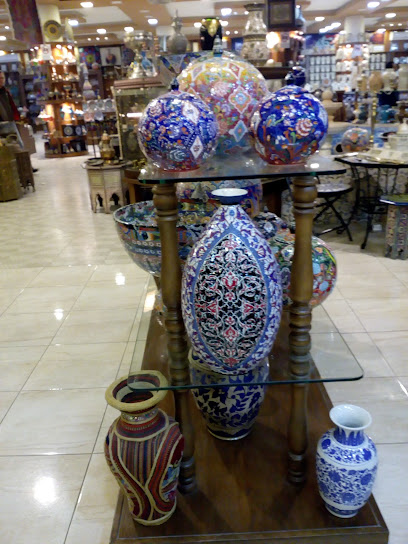
זמן אמיתי SHOP
Explore the vibrant treasures of Tel Aviv-Yafo at זמן אמיתי SHOP, your go-to destination for unique gifts and local artisan crafts.
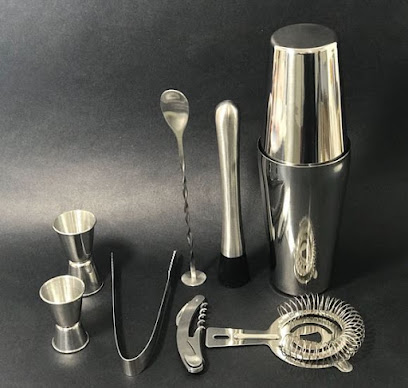
Jaffa Market Antique & Second Hand
Explore Jaffa Market Antique & Second Hand for unique vintage finds and treasures that reflect the rich history of Tel Aviv-Yafo.
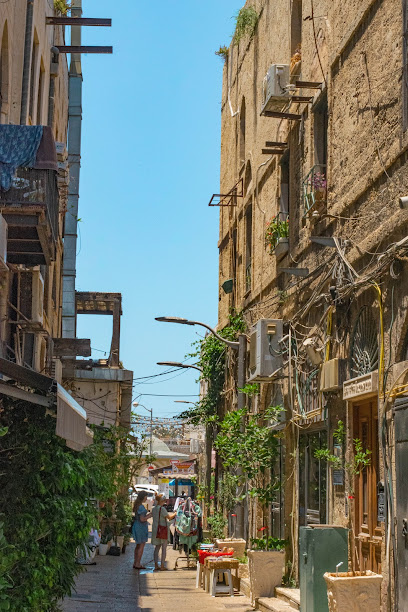
Essential bars & hidden hideouts
Shaffa Bar
Discover the vibrant nightlife of Tel Aviv at Shaffa Bar, where eclectic music, creative cocktails, and a lively atmosphere await.
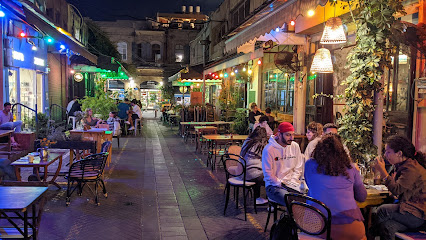
ראיסה בשוק הפשפשים
Experience the vibrant fusion of flavors at Raisa in the Flea Market, a hotspot for cocktails and tapas in Tel Aviv-Yafo.
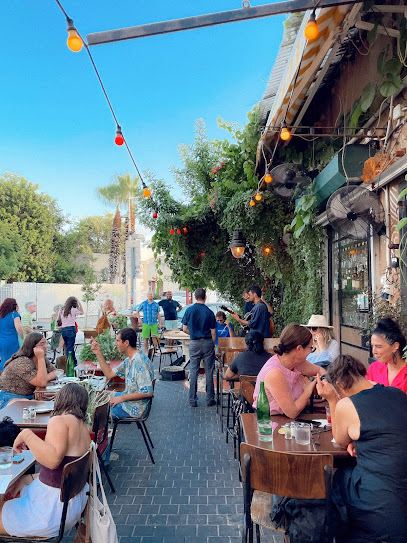
Akbar
Experience the vibrant nightlife of Tel Aviv at Akbar, where exceptional drinks and Mediterranean cuisine create unforgettable memories.
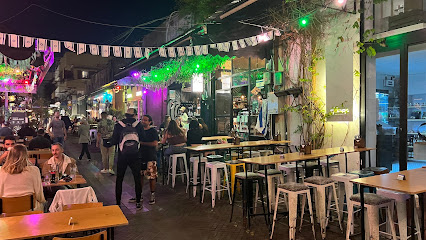
Par Derriere
Discover the art of wine and brunch at Par Derriere, Tel Aviv-Yafo's premier wine bar offering an exquisite culinary experience.
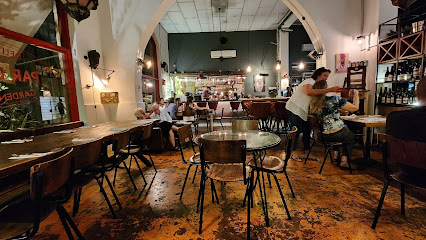
BeerBazaar Jaffa
Experience the best of craft beer in Tel Aviv-Yafo at BeerBazaar Jaffa, where local flavors meet a vibrant bar atmosphere.
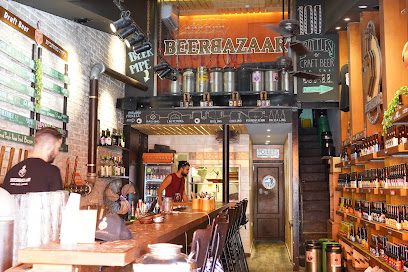
Margoza Bar
Experience the vibrant nightlife at Margoza Bar, a gastropub in Tel Aviv-Yafo serving crafted cocktails and gourmet dishes in a lively atmosphere.
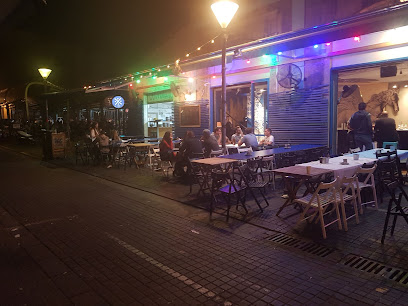
The Alchemist
Discover The Alchemist, a premier cocktail bar in Tel Aviv offering innovative drinks and a vibrant atmosphere for an unforgettable night out.
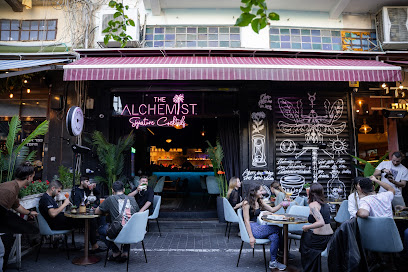
Hagafen Wine Courtyard
Experience the vibrant atmosphere and exquisite wines at Hagafen Wine Courtyard in Tel Aviv-Yafo, where every sip tells a story.
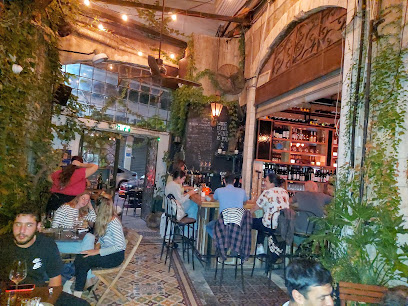
בר שוק הפשפשים
Discover Bar Shuk HaPishpeshim: A vibrant sports bar and coffee haven in Tel Aviv-Yafo, perfect for sports fans and coffee enthusiasts alike.
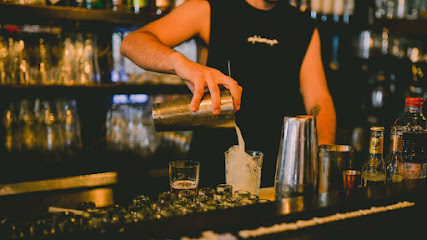
Piano Bar Jaffa
Discover the lively essence of Tel Aviv-Yafo at Piano Bar Jaffa, where music and drinks create unforgettable memories.
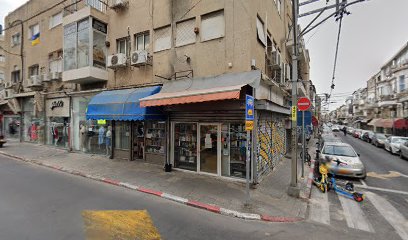
Local Phrases
-
- Helloשָלוֹם
[Shalom] - Goodbyeלְהֵיפָּךְ
[Lehitra'ot] - Yesכֵּן
[Ken] - Noלֹא
[Lo] - Please/You're welcomeבְּבַקָּשָׁה
[Bevakasha] - Thank youתוֹדָה רַבָּה
[Toda raba] - Excuse me/Sorryסְלִיחָה
[Slicha] - How are you?אֵיך אַתָּה?
[Eich atah?] - Fine. And you?טוֹב. וְאַתָּה?
[Tov. Ve'ata?] - Do you speak English?הֲאַתָּה מְדַבֵּר אַנְגְלִית?
[Ha'ata medaber anglit?] - I don't understandאֲנִי לֹא מְבִין
[Ani lo mevin]
- Helloשָלוֹם
-
- I'd like to see the menu, pleaseאֲנִי רוֹצֶה לִרְאוֹת אֶת תַּפְרִיט, בְּבַקָּשָׁה
[Ani rotze lirot et tafrid, bevakasha] - I don't eat meatאֲנִי לֹא אוֹכֵל בָּשָׂר
[Ani lo ochel basar] - Cheers!לְחַיִּים!
[Lechayim!] - I would like to pay, pleaseאֲנִי רוֹצֶה לְשַלֵם, בְּבַקָּשָׁה
[Ani rotze lishalem, bevakasha]
- I'd like to see the menu, pleaseאֲנִי רוֹצֶה לִרְאוֹת אֶת תַּפְרִיט, בְּבַקָּשָׁה
-
- Help!עֶזְרָה!
[Ezrah!] - Go away!לְךָ לְהִלָּךְ!
[Lecha lehilach!] - Call the Police!הַתְקִיף אֶת הַמִּשְׁטָרָה!
[Hatkif et hamishtara!] - Call a doctor!הַתְקִיף רוֹפֵא!
[Hatkif rofe!] - I'm lostאֲנִי אֲבוּדָה
[Ani avuda] - I'm illאֲנִי חוֹלֶה
[Ani holeh]
- Help!עֶזְרָה!
-
- I'd like to buy...אֲנִי רוֹצֶה לִקְנוֹת...
[Ani rotze liknot] - I'm just lookingאֲנִי רַק רוֹאֶה
[Ani rak roeh] - How much is it?כַּמָה זֶה עוֹלֶה?
[Kama ze oleh?] - That's too expensiveזֶה יָקָר מִדַי
[Ze yakar midai] - Can you lower the price?אֶתָּה יָכוֹל לְהוֹרִיד אֶת הַמְחִיר?
[Ata yachol lehorid et hamchir?]
- I'd like to buy...אֲנִי רוֹצֶה לִקְנוֹת...
-
- What time is it?כָּמָה הַשָּעָה?
[Kama hasha'a?] - It's one o'clockהִיא אַחַת בַּבֹּקֶר
[Hi achat baboker] - Half past (10)חֲצִי (עֶשֶׂר)
[Chatzi (eser)] - Morningבֹּקֶר
[Boker] - Afternoonצָהֳרַיִם
[Tzohorayim] - Eveningעֶרֶב
[Erev] - Yesterdayאֶתְמוֹל
[Etmol] - Todayהַיוֹם
[Hayom] - Tomorrowמָחָר
[Mahar] - 1אֶחָד
[Echad] - 2שְׁנַיִם
[Shnayim] - 3שָׁלוֹשׁ
[Shalosh] - 4אַרְבַּע
[Arba] - 5חָמֵשׁ
[Chamesh] - 6שֵׁשׁ
[Shesh] - 7שֶׁבַע
[Sheva] - 8שְׁמוֹנֶה
[Shmoneh] - 9תִשְׁעָה
[Tishah] - 10עֶשֶׂר
[Eser]
- What time is it?כָּמָה הַשָּעָה?
-
- Where's a/the...?אֵיפֹה נִמְצָא...
[Efo nimtza...] - What's the address?מַה הָכתוֹבֶת?
[Ma hakatevet?] - Can you show me (on the map)?אַתָּה יָכוֹל לְהַרְאוֹת לִי (עַל הַמַפָּה)?
[Ata yachol leha'rot li (al hamapa)?] - When's the next (bus)?מָתַי הַאוֹטוֹבוּס הַבָּא?
[Matai ha'otobus haba?] - A ticket (to ....)כַּרְטִיס (לְ...)
[Kartis (le...)]
- Where's a/the...?אֵיפֹה נִמְצָא...
History of Ajami
-
Ajami's history can be traced back to the Ottoman Empire, when it was established as a neighborhood for Jewish immigrants and later became a center for Arab families. The late 19th century saw significant development as the influx of various ethnic groups shaped the cultural landscape of Jaffa, with Ajami emerging as a vibrant community known for its mixed population.
-
The events of 1948 drastically altered Ajami's demographic and cultural composition. Following the war, many Arab residents were displaced, leading to a significant shift in the neighborhood’s population. Those who remained faced numerous challenges, including loss of property and community support, which deeply affected the social fabric of Ajami.
-
In the late 20th and early 21st centuries, Ajami began to experience a resurgence as artists and young families moved in, attracted by its historic charm and coastal views. This revitalization has fostered a renewed sense of cultural identity, blending the neighborhood's rich Arab heritage with contemporary artistic expressions, making Ajami a focal point for cultural events and community gatherings.
-
As gentrification has taken hold, Ajami faces both opportunities and challenges. The influx of new residents and investments has led to increased property values, which poses a threat to long-standing families who have lived in the area for generations. This dynamic has sparked discussions around cultural preservation, access to housing, and the future identity of the neighborhood.
-
Ajami serves as a microcosm of Jaffa's broader multicultural identity, reflecting the city's complex history of coexistence among Jews, Arabs, and other communities. The neighborhood is marked by its diverse culinary scene, local markets, and community art initiatives, which embody the resilience and creativity of its residents while fostering intercultural dialogue.
Ajami Essentials
-
Ajami is easily accessible from other neighborhoods in Jaffa. If you're coming from the Old City of Jaffa, you can walk to Ajami in about 15-20 minutes. Alternatively, local buses operate frequently, connecting Ajami to various parts of Tel Aviv and Jaffa. The nearest train station is in Tel Aviv, from where you can take a bus or taxi to Ajami.
-
Ajami is a walkable neighborhood with many attractions within close proximity. Local buses operate throughout Jaffa, including routes that service Ajami. Taxis are also readily available. For a unique experience, consider renting a bicycle to explore the area at your own pace. Be mindful of the traffic, especially during peak hours.
-
Ajami is generally safe for tourists, but, like any urban area, it is wise to remain cautious. Avoid wandering into isolated streets after dark and be aware of your belongings in crowded spaces. While most areas are safe, stay vigilant in certain parts of Ajami known for higher crime rates, particularly at night.
-
In case of an emergency, dial 100 for police or 101 for medical assistance. Familiarize yourself with the nearest hospital or medical clinic in Jaffa. It's advisable to have travel insurance that covers emergencies, and keep a list of local emergency contacts handy. For minor health issues, there are pharmacies available in the area.
-
Fashion: Do dress modestly when visiting religious sites. Avoid overly revealing clothing. Religion: Do respect local customs, especially during prayer times. Public Transport: Do give up your seat for elderly passengers and don't eat on public transport. Greetings: Do greet people with a smile and a handshake. Eating & Drinking: Do try local foods and accept hospitality graciously. Don't waste food or refuse offers without a polite explanation.
-
To experience Ajami like a local, visit the nearby markets for fresh produce and local goods. Engage with local residents, who are often friendly and willing to share their stories. Attend local events or festivals if they coincide with your visit for authentic cultural experiences. Don't miss the stunning beach at Ajami, a great place to relax and enjoy the sunset.
Nearby Cities to Ajami
-
Things To Do in Holon
-
Things To Do in Ramat Gan
-
Things To Do in Tel Aviv
-
Things To Do in Herzliya
-
Things To Do in Hod Hasharon
-
Things To Do in Ra'anana
-
Things To Do in Raanana
-
Things To Do in Kfar Saba
-
Things To Do in Ashdod
-
Things To Do in Modi'in
-
Things To Do in Netanya
-
Things To Do in Hadera
-
Things To Do in Jerusalem
-
Things To Do in Caesarea
-
Things To Do in Bethlehem












